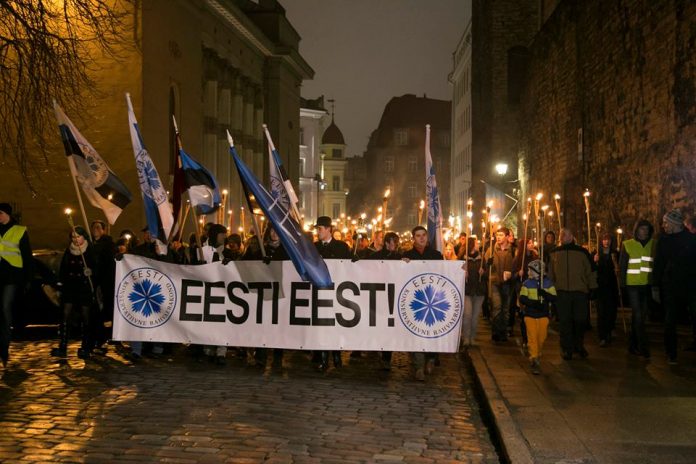On Monday April 29, the Prime Minister of Estonia Jüri Ratas presented a 15-member coalition government at the 101-seat Riigikogu (Parliament) assembly in Tallinn.
Ratas’s party, the Estonian Centre Party (Eesti Keskerakond) an ALDE member lost last elections. It came second behind the Reform Party, another ALDE member.
Ratas’s will to remain in power was known as well as his tendency to achieve this goal by any means. This is why his party called on negotiations the far-right party EKRE (Estonian Conservative People’s Party) and the Pro Patria, a nationalist and conservative party, despite the fact that ALDE’s President Guy Verhofstadt warned him that any deal with EKRE could seriously damage Centre Party’s position inside ALDE.
Now, after negotiations between Ratas and the far-right reached a deal, EKRE entered the coalition government.
While EKRE’s participation in the government seems to be a lucrative family affair, since Mart Helme (father) was appointed interior minister and his son Martin was appointed finance minister, it represents a serious concern for the future of Estonian politics.
EKRE’s policy is marked by anti-immigration rhetoric -in a country without immigrants- a dubious and ultraconservative attachment on “Christian values” demanding changes to the country’s abortion law as well as by a fierce opposition to Estonia’s participation in the EU.
EKRE’s rise was an electoral surprise. It increased its vote share to 18% (8% in 2015) and became the third largest party in the 101-seat Riigikogu.
EKRE’s participation in a coalition government threatens to further divide Estonian society since it supports the marginalization of the Russian-speaking community (who represents quite 25% of the population).
What is more, leading members of the party made often racist statements while its views regarding the independence of the judiciary and rule of law in general are in direct contrast with EU values.
It is also interesting to see if and in which way ALDE’s President Guy Verhofstadt will react.

